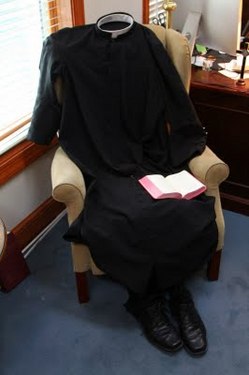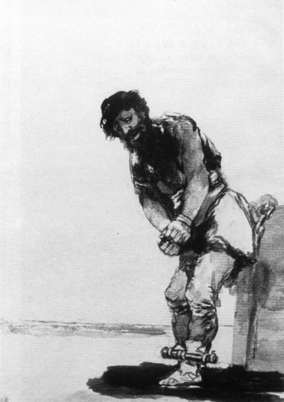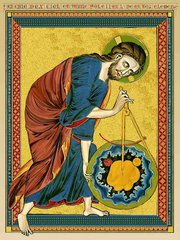Continue reading The promise made by Christ: error won’t prevail
Continue reading The promise made by Christ: error won’t prevail
 The rapture came and went…and this guy got caught up in it. Good for him. The rest of us will meander along…but in case you want to join the others in the rapture, the actual date is now October 21. So I am told. But what time should people be ready? Harold Camping, founder of Family Radio and rapture prophet. Camping might be ready for the rapture as he’s now recovering from a stroke. The 89 year old prophet of doom-and-gloom-Christian-style alters his guaranteed prediction of Judgement Day every so often.
The rapture came and went…and this guy got caught up in it. Good for him. The rest of us will meander along…but in case you want to join the others in the rapture, the actual date is now October 21. So I am told. But what time should people be ready? Harold Camping, founder of Family Radio and rapture prophet. Camping might be ready for the rapture as he’s now recovering from a stroke. The 89 year old prophet of doom-and-gloom-Christian-style alters his guaranteed prediction of Judgement Day every so often.
Posted on his blog today, The Gospel in the Digital Age, Archbishop Timothy Michael Dolan wrote a piece on meaning of marriage and family according to natural reason and Catholic belief. His Excellency makes several and crucial points that require our clear attention. A sound-bite understanding of these important issues is insufficient for us.
The stampede is on. Our elected senators who have stood courageous in their refusal to capitulate on the state’s presumption to redefine marriage are reporting unrelenting pressure to cave-in.
The media, mainly sympathetic to this rush to tamper with a definition as old as human reason and ordered good, reports annoyance on the part of some senators that those in defense of traditional marriage just don’t see the light, as we persist in opposing this enlightened, progressive, cause.
I am very glad that the first engagement of my visit should
be with you, representing as you do key sectors of Croatian society and the
Diplomatic Corps. My cordial greetings go to each of you personally and
also to the important communities to which you belong: religious, political,
academic and cultural, the world of the arts, finance and sport. I thank
Archbishop Puljic and Professor Zurak for the kind words they have addressed to
me, and I thank the musicians who have welcomed me in the universal language of
music. This dimension of universality, characteristic of art and culture,
is particularly appropriate for Christianity and the Catholic Church. Christ is fully human, and whatever is human finds in him and in his word the
fullness of life and meaning.
Continue reading Society is built upon gift of self and a well-formed conscience tells Croats, us
Father Edward T. Oakes, SJ, is a professor of systematic theologian teaching at Mundelein Seminary. He is a member of the some time meeting of the Dulles Colloquium (a theological discussion group that was organized by Father Richard J. Neuhaus and Cardinal Avery Dulles) and he is a member of the ecumenical theological discussion group Evangelicals and Catholics Together. Oakes is a frequent writer for First Things and several other periodicals. Oakes is the author of Pattern of Redemption and a co-editor of The Cambridge Companion to Hans Urs Von Balthasar. There are several translations done by Father Oakes of Balthasar to note.
 What will the years ahead bring us? What will man’s
What will the years ahead bring us? What will man’s
future on earth be like? We are not given to know. However, it is certain that
in addition to new progress there will unfortunately be no lack of painful
experiences. But the light of divine mercy, which the Lord in a way wished to
return to the world through Sr Faustina’s charism, will illumine the way for
the men and women of the third millennium.
Continue reading Divine Mercy: Jesus bending over our humanity
 Programs for prisoner reentry into society is crucial in keeping people clean, working, and being a good citizens. “Do-good-ing” is not a Catholic principle. We have plenty of good people doing good all the time. In fact, my heart is really moved by those who don’t have a faith tradition to call their own and are motivated to act charitably toward those in need. Living a life of virtue and prayer are Catholic ways of proceeding. Showing mercy is what we are called to live in concrete ways. Helping the excon get on his or her feet again and walking with them is Jesus-inspired act.
Programs for prisoner reentry into society is crucial in keeping people clean, working, and being a good citizens. “Do-good-ing” is not a Catholic principle. We have plenty of good people doing good all the time. In fact, my heart is really moved by those who don’t have a faith tradition to call their own and are motivated to act charitably toward those in need. Living a life of virtue and prayer are Catholic ways of proceeding. Showing mercy is what we are called to live in concrete ways. Helping the excon get on his or her feet again and walking with them is Jesus-inspired act.
Continue reading ExCons need Christian charity for conversion, new life
In weekly classes on the Catholic I’ve been stressing a few (of many) points:
Jesuit Father Antonio Spadaro, the literature editor
the Italian bi-weekly journal La Civiltà Cattolica published an article
“Towards a ‘Cybertheology’?” which will appear in the January 1st issue.
Father Spadaro’s summary:

The authority of sacred Scripture should be authoritative enough, but in case Scripture fails your logic, the Church also says that Truth is identified and lived through and with sacred Tradition and the Magisterium. More clearly: the believing Catholic holds that Truth is revealed in three inter-related pillars: sacred Scripture, Tradition and the Magisterium. One can’t have one of the pillars without the others. To do so would mean that you are Protestant.
Concerning many in the Church (catechist, laity and ordained) is the lack of understanding of who Jesus is, and His place in our lives today. Many Catholics are functional agnostics; they have no concept of who Jesus is, why He is important, and what he has to do with the Church. No surprise to me since I contend that many of the ordained can’t adequately explain matters of Christology or Sotierology (the study of Chist and the study of salvation respectively) as is evidence in their praying the Mass, preaching, their practice of the sacraments in their own lives, and their teaching in other venues. I would also contend that many of the ecclesial problems we face today are the direct result of not really knowing who Jesus is, and how to conform ourselves to His Way. The Pslams, as one example, tell us to seek the face of the Lord (the Christian would understand this to mean, seek the face of Christ). As one consequence of not knowing Jesus is the denial that we are already saved –that salvation has already happened, that the hundredfold promised by the Lord is already fulfilled. Do you know that you are saved? Do act as though you are saved or are still persisting in your sinful ways?
In the recent English edition of the L’Osservatore Romano (7 April 2010), Lucetta Scardaffia’s article “The Shroud and secularization” makes a few good points to think about when asking the questions about who Jesus is and what we face today:
“It seems incredible, but many young people do not even know that Jesus existed historically: in various countries, including Italy, today the history of Christianity no longer forms part of the school curriculum, and this leads to an ignorance that is also the result of tendencies geared to make Christianity a religion like others, with no specificity, hence leading to considering Christ as a mythical being, almost as if he were a Greek, Roman or Orienal divinity.
In international milieus — even in organizations such as the United Nations– propaganda for a mistaken concept of multiculturalism has been spreading for decades: this is proposed as a panacea for every conflict, providing that all religions be considered absolutely equal, in other words that each waives all claim to truth.
Remembering that Christianity is born from the existence in history of a man, Jesus, who said he was the Son of God, is an obstacle to the seemingly irenic fabrication because it highlights the difference of Christianity in comparison with other religions. A God who becomes incarnate to save human beings, in fact is an absolute unicum [absolutely unique], difficult to standardize.
…
The history of the birth of the individual is also interwoven with the history of the theological and sacramental significance of the Body of Christ –with the history of the sacrifice of the altar, for which the Body becomes a monstrance.